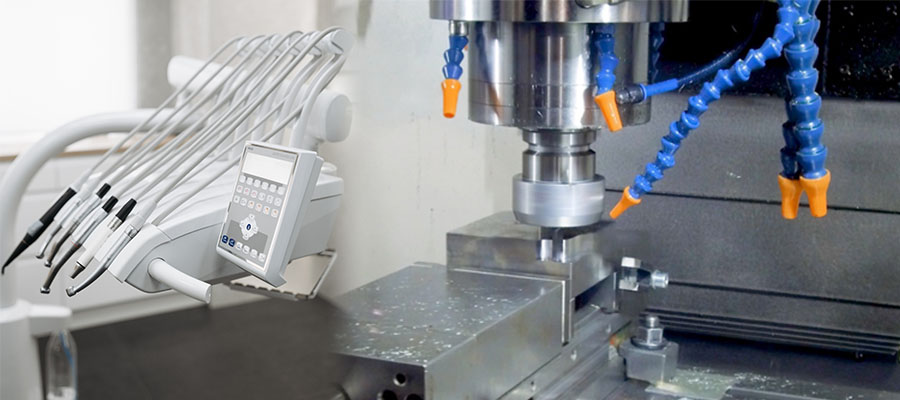The medical device industry plays a critical role in improving healthcare outcomes and enhancing patient lives. As technology continues to advance, CNC machining has emerged as a transformative force within this industry. With its unparalleled precision, efficiency, and versatility, CNC machining is revolutionizing the medical device manufacturing process. In this post, we will explore the various ways CNC machining is transforming the medical device industry and the benefits it brings to both manufacturers and patients.
Enhanced Precision:
Precision is of utmost importance in the medical device industry, where even the smallest error can have significant consequences. CNC machining utilizes advanced computer-controlled systems to achieve exceptional precision in part manufacturing. The precise control of cutting tools, spindle speed, and feed rates ensures that each medical device component is accurately machined to the exact specifications required. With its ability to perform intricate and complex machining operations, CNC machines can produce medical devices with tight tolerances and precise geometries. This level of precision ensures that medical devices meet the strict regulatory standards and deliver optimal performance when used in healthcare settings.
Efficient Production:
CNC machining offers unparalleled efficiency in the production of medical devices. The automation capabilities of CNC machines allow for continuous operation and high-speed machining, minimizing production time and increasing output. The use of computer-aided design (CAD) and computer-aided manufacturing (CAM) software enables manufacturers to develop optimized tool paths, reducing the machining time required for each part. Additionally, CNC machines can seamlessly switch between different machining operations, eliminating the need for manual intervention and reducing the risk of errors. This streamlined production process enables manufacturers to meet tight deadlines, scale their production capacity, and respond quickly to market demands.
Versatility in Material Selection:
Medical devices often require specific materials that meet stringent safety and biocompatibility standards. CNC machining offers a wide range of material options, including metals, plastics, ceramics, and composites, providing manufacturers with the flexibility to choose the most suitable material for their devices. Whether it’s surgical instruments, prosthetics, or implantable devices, CNC machining can handle the machining requirements of diverse materials, ensuring the final products possess the desired characteristics and functionality. The ability to work with various materials enables manufacturers to create medical devices that are lightweight, durable, and resistant to corrosion, enhancing their overall performance and longevity.

Customization and Complex Geometry:
The ability to customize medical devices based on individual patient needs is a game-changer in the healthcare industry. CNC machining excels in producing complex geometries and intricate designs, enabling the creation of highly customized medical devices. By leveraging advanced computer-aided design (CAD) software, manufacturers can develop patient-specific implants, prosthetics, and orthopedic devices that perfectly match the anatomical requirements of each patient. This level of customization not only improves patient comfort but also enhances the overall efficacy of the medical devices. CNC machining allows for precise and repeatable production of complex shapes and intricate features, ensuring that each customized medical device meets the specific needs of the patient.
Cost-effectiveness:
While precision and efficiency are vital, cost-effectiveness remains a critical factor in the medical device industry. CNC machining offers cost advantages through reduced material waste, optimized machining processes, and increased productivity. The ability to program CNC machines to maximize material usage minimizes material waste, resulting in significant cost savings over time. Moreover, the automation and streamlined workflow in CNC machining reduce labor costs and enhance overall operational efficiency, making it an economically viable solution for medical device manufacturers. By minimizing errors and rework, CNC machining also reduces costs associated with quality control and ensures that each medical device is manufactured to the highest standards.
Conclusion:
CNC machining has become a game-changer in the medical device industry, transforming the way medical devices are designed, manufactured, and customized. With its exceptional precision, efficiency, versatility, and cost-effectiveness, CNC machining is revolutionizing the production of medical devices, driving innovation, and improving patient care. As technology continues to evolve, we can expect further advancements in CNC machining techniques, such as the integration of artificial intelligence and machine learning, enabling even greater possibilities for the medical device industry and ultimately benefiting patients worldwide. The future of medical device manufacturing is undoubtedly shaped by the transformative power of CNC machining.


